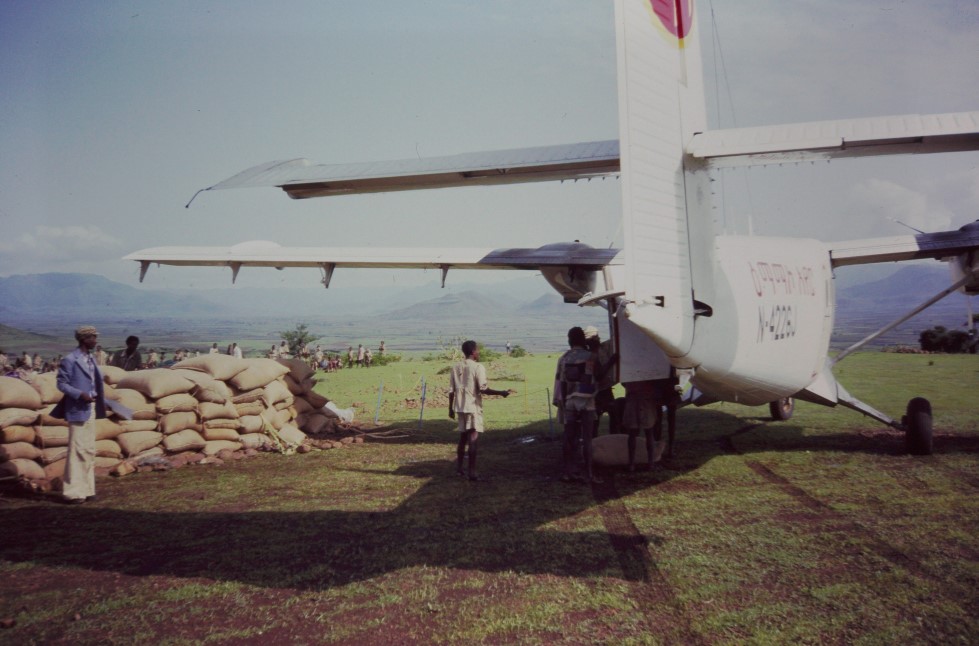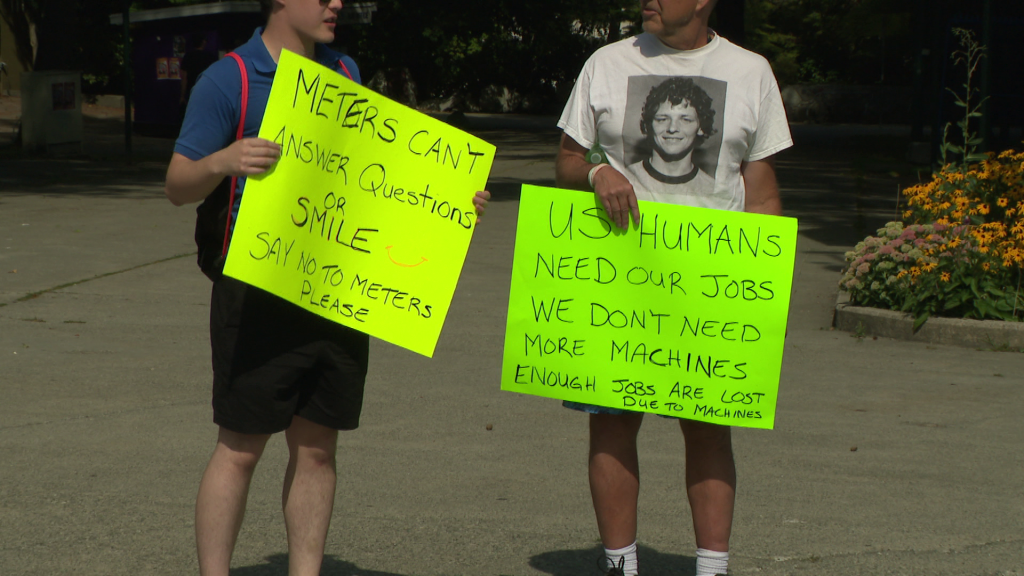It was 40 years ago this weekend when a bunch of high profile rockers got together to perform for Live Aid in London and Philadelphia in an event designed to raise money for a massive famine in Ethiopia.
The famine became headline news only after a crew from the BBC was flown into the region to document the devastation.
A Vancouver man was the pilot who flew those journalists into Ethiopia on that fateful day in October 1984.
His name is Keith Ketchum, and he volunteers with Mission Aviation Fellowship.
1130 NewsRadio’s Renee Bernard chatted with him this week about the mission in 1984.
Renee: How did you get involved with the mission?
Ketcham: I was working with World Vision. So they’re an NGO that was in Ethiopia at the time. And my own organization, Mission Aviation Fellowship, had been in Ethiopia from 1960 to 1977, but the Marxist, Leninist government took over and forced all missionaries out. And so we had nothing more to do. We left in 1977 when there was impending famine. World Vision bought an airplane. It was a Canadian airplane. It was a Twin Otter. The airplane is built in Toronto, and the engines are built in Montreal. So it was very Canadian. And when they were looking for flight crew, there was a little bit of tension between the US government and this new Marxist country. So they looked in Canada, where we use Twin Otters in the Canadian north. And so most of the flight crew and maintenance guys were from Canada.
So from about 1982 till 1984, we were just serving pockets of food shortage that were identified mainly in the south because there was rebel activity in the north. And as most people know, the government was using the famine as a weapon and trying to starve out the rebels. So we were busy in the south, just flying 12 hours a day from the end of the road, where there was a warehouse fuel cache, and flying it into places which were beyond the roads. And there were probably three or four different operations we did.
After two months, we would move on to a new operation. This was all organized by World Vision Ethiopia. Around the middle of 1984, we were called into the office, and I’ll never forget the program manager saying, “Guys, we’re using a teaspoon and we need a wheelbarrow.” He meant, instead of two tons at a time, he was thinking about like a Hercules transport carrying 22 tons at a time. But there wasn’t any aircraft like that in the country, so we just carried on, and they were going to get about five major NGOs together and buy a Hercules and operate it cooperatively.
In 1984 in October, we were told we would be flying a BBC film crew to Northern Ethiopia. Now, this had taken a lot of different permissions, and World Vision had arranged them all. So we flew them up to Mekelle on the 19th of October, and then we were to fly them down to a place called Lalibela, which is the scene of a UNESCO World Heritage Site. There are 11 monolithic stone churches, underground, built in the 12th century. For us, it was a feeding camp. We got word that the rebels had just overrun that town, so the plan was changed. We went instead to a place called Alamata, which was a World Vision feeding camp. And from there, the BBC film crew, which was Michael Buerk, the journalist, Mohamed Amin, the photojournalist, Mike Wooldridge, the radio journalist, drove up the escarpment to Korem, where there was a feeding camp of 85,000 people.
This was the largest feeding camp the world had yet known. And they took those landmark pictures and the narrative, the very somber narrative by Michael Buerk, and we then the next day flew them back to Addis Ababa. They got on an airplane, went back to the UK, and on the 23rd of October, they showed that footage on TV to all the living rooms in the U.K. And I think about 140 other news outlets picked up the story, and pretty soon the world had seen what was going on in Ethiopia.
Renee: This famine had been going on for months before that, and you were delivering pockets of food wherever you could. So you’d probably seen a lot up until that point. And did you realize that bringing journalists would have changed the trajectory of this whole famine and how it was being dealt with in the eyes of the world?
Ketcham: I hope you’re not going to be too angry, but I began to despise journalists, because every journalist we carried meant that we had to take a bag of grain off the airplane, this very small airplane. So, you know, you put on 100 kilos worth of journalists, and you have to take off a grain bag. There weren’t many. They were just trickling in, coming in to see this story, but the government would not allow them to go just anywhere, so they had to get permissions. And this was quite difficult.
When it came to the BBC, we were just tasked to go. Forget about the grain. Just take these guys where they want to go, and so no grain bags were offloaded in the making of that narrative, we had no idea that this would be as big as it ended up being.
It was great that the world got to know what was going on. We were hearing from our friends and family that they didn’t really get any news about Ethiopia, so the Marxist government was keeping it quite quiet. I have to say, we actually didn’t know when the thing aired on the 23rd of October. I was quite oblivious, because I was going to propose to my girlfriend the next morning. So I had no idea.
And then we got a phone call or two from our friends and family saying, ‘Oh, we’ve just seen this news cast about Ethiopia, and it was horrible.’
Bob Geldof (the man who would stage Live Aid) also saw this newscast, and it made him angry enough to do something about it.
Renee: On the 40th anniversary of Live Aid, what are you going to be thinking of?
Ketcham: I have to confess, I didn’t even watch it when it happened, because I was on my honeymoon in western Scotland. But, yeah, amazing. I mean, I still tear up when I hear We Are the World, because it really is true. And you know, if we don’t think about our neighbors in other countries with compassion…. I say that Bob Geldof taught a generation that it was cool to be compassionate. Somebody needs to be that same voice for this generation.
Keith still works with Mission Aviation Fellowship in the training department. The mission continues to fly in food and supplies to places in the world that need them.





